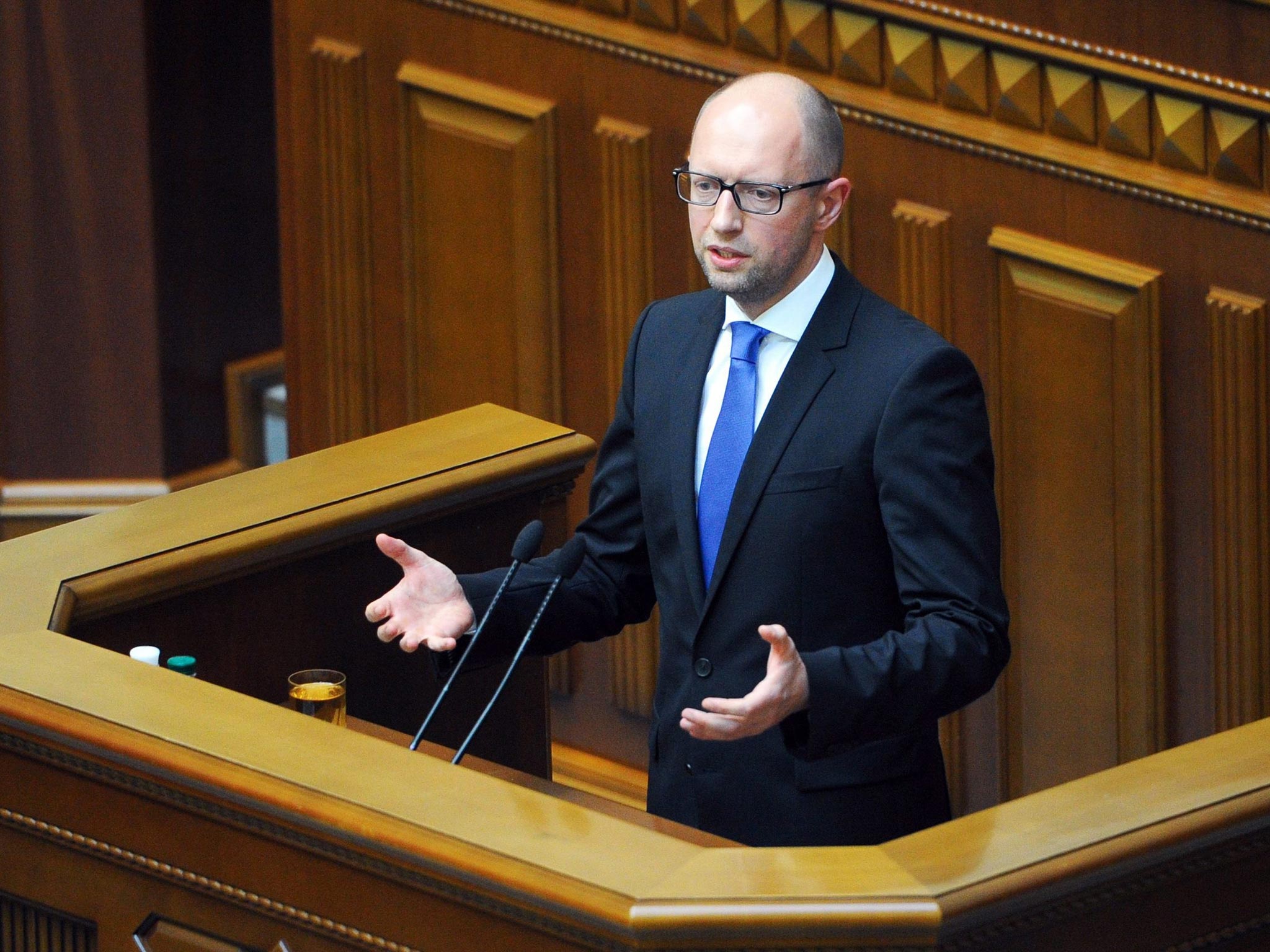Ukraine crisis: PM Arseny Yatseniuk resigns over his country's precarious energy situation
Parliament has blocked legislation to allow a liberalisation of control over Ukraine's gas pipeline system

Ukraine’s Prime Minister has announced his resignation, adding to the turmoil in a country which is still dealing with the aftermath of the downing of Malaysia Airlines flight MH17 as well as a separatist insurgency.
Arseniy Yatsenyuk accused parliament of putting Ukraine’s future at risk by blocking legislation to pay soldiers and free the country from dependence on Russian oil supplies.
Earlier in the day, President Petro Poroshenko welcomed the departure of two parties from a parliamentary coalition, a move that opened the way for new parliamentary elections to give the country what he called “a full reset”.
Two Ukrainian parties, the nationalist Svoboda, or Freedom, and Udar, or Punch – led by the former boxer Vitali Klitschko – said they had left the majority coalition in parliament to allow a new election. Politicians and activists have complained that while Ukraine has a new President, it has yet to elect a new parliament since the toppling of the pro-Russian leader Viktor Yanukovych in February.
“Society wants a full reset of state authorities,” Mr Poroshenko said in a statement. According to the Ukrainian constitution, the parliament has 30 days to try to forge a new coalition. If that fails, the President then can dismiss parliament and call a new election.
The Parliamentary Speaker, Oleksandr Turchynov, said it was up to Udar and Svoboda to propose a candidate for temporary Prime Minister to lead the government until early parliamentary elections can be held.
Amid the political wrangling, the Australian Prime Minister, Tony Abbott, said he fears some remains of the victims of the MH17 tragedy will never be recovered unless security is tightened around the site of the wreckage.
US officials say the plane was probably shot down by a missile from territory held by the pro-Russian separatists, likely by accident. There have been numerous interviews by separatist leaders in recent days giving conflicting accounts about whether they possessed the Buk missile system, supposedly used to bring MH17 down. Many Western nations have accused Russia of backing the rebels with arms, money, logistical support and personnel, and tonight the US State Department claimed that America had intelligence that Russia was firing artillery into Ukraine from within its own borders. Mr Abbott spoke of a multinational force to protect the crash site, mounted by countries such as Australia, the Netherlands and Malaysia, all of which lost citizens when the 298 victims were killed in the disaster. He said that he had dispatched 50 police officers to London to be ready to join any organisation which may result.
Australia’s Foreign Minister, Julie Bishop, alongside her Dutch counterpart, Frans Timmermans, were said to be in Kiev to seek an agreement with the Ukraine government to allow international police to secure the site.
Two more transport planes containing additional bags of human remains left Ukraine and arrived in the Netherlands, where experts will begin the stark task of trying to identify them. Officials have asked relatives of the passengers and crew to provide DNA samples to help the process.
A total of 40 bodies arrived in the Netherlands on Wednesday, where they were met by the Dutch King, Willem-Alexander. Dozens more coffins of victims arrived in Amsterdam on Thursday.
Patricia Zorko, head of the National Police Unit that includes the Dutch national forensic team, said some 200 experts, including 80 from overseas, were working at a military barracks on the outskirts of the central city of Hilversum to identify the dead. Around the world some 1,000 people are involved in the process, which also includes gathering information from next of kin. Malaysia’s Prime Minister, Najib Razak, said it might take “weeks or months” before remains of the Malaysian passengers and crew who died in the downing of the plane were returned home. It had been hoped the remains of the 43 Malaysians who died would be returned before the Muslim holiday of Eid, or Hari Raya.
“We cannot avoid a very painstaking process. This is both the technical requirement and the legal requirement,” the Premier said after signing a condolences book at the Dutch embassy.
Join our commenting forum
Join thought-provoking conversations, follow other Independent readers and see their replies
Comments